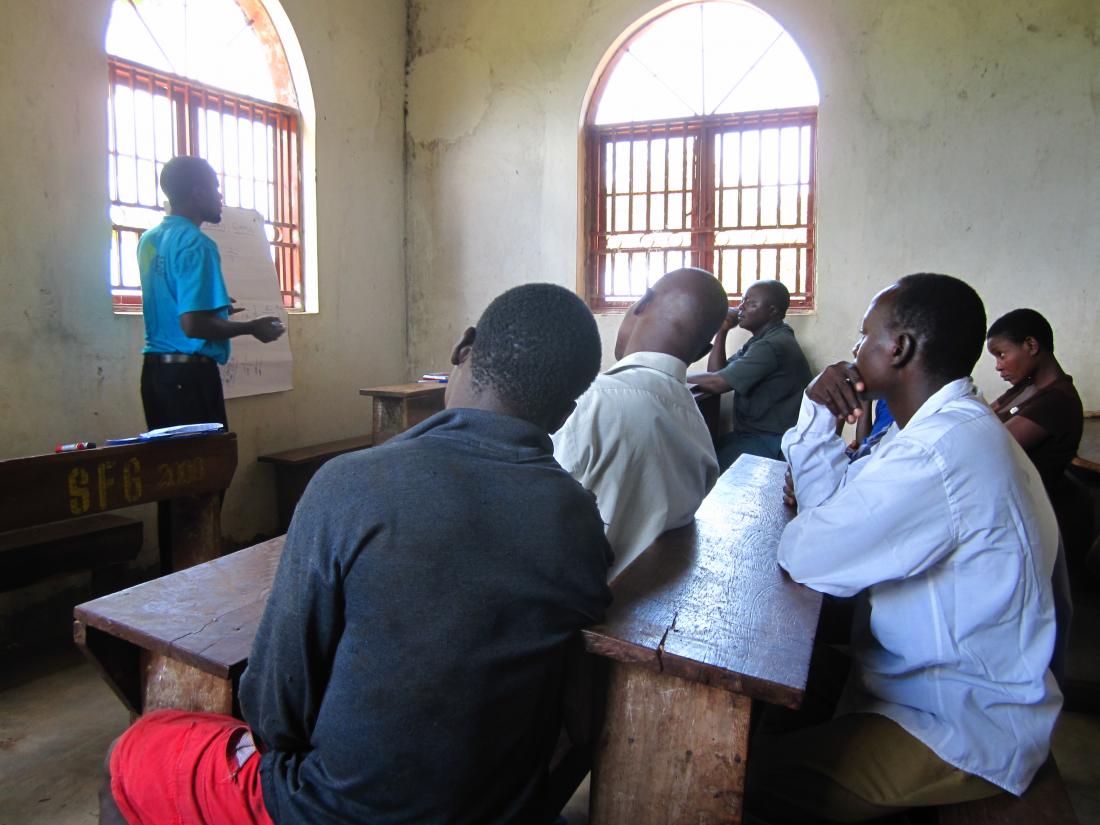Soft versus Hard Skills in Entrepreneurial Success: Evidence from Youth Entrepreneurship Training in Uganda
- Entrepreneurs
- Students
- Youth
- Earnings and income
- Employment
- Mental health
- Socio-emotional development
- Business skills training
- Soft skills
- Hard skills
Youth unemployment—an acute problem in Sub-Saharan Africa—can have long-term negative implications, both on individuals’ quality of life and on broader socio-economic development outcomes. A lack of necessary skills is often cited as contributing to high unemployment, and there is little evidence on what types of training can lead to positive outcomes. In an ongoing evaluation, researchers are investigating the impact of entrepreneurship training and the role of soft versus hard skills on Ugandan youth.
Policy issue
Youth unemployment is an acute problem in low-income countries, especially in Sub-Saharan Africa.1 Young people account for 60 percent of the unemployed in Sub-Saharan Africa, and 72 percent of young people between the ages of 15 and 24 live below the US$2 a day poverty line.2 A lack of necessary skills is often cited as contributing to high unemployment, and there is little evidence on what types of training can lead to positive outcomes.
Many governments recognize that their economies would benefit from better-trained entrepreneurs, and several African countries have integrated entrepreneurship training into high school curriculums. However, these programs are primarily based on hard skills (e.g., accounting, finance, and strategy) and ignore the potential contribution of soft skills such as communication, negotiation, and decision-making. In an ongoing evaluation, researchers are investigating the impact of entrepreneurship training and the role of soft versus hard skills on Ugandan youth.
Context of the evaluation
In Uganda, many youth lack formal business skills, are underemployed, and mostly rely on income from small enterprises. As a result, there is significant potential to increase economic growth and employment by increasing the number of workers with the knowledge necessary to enhance business practices and expand opportunities.
Researchers partnered with the International Labor Organization (ILO), the Uganda Ministry of Education, and Educate!, a local NGO specializing in entrepreneurship, to develop two business training programs based on standard MBA curriculum and adapted to the Ugandan environment. One program focused primarily on hard skills such as how to generate a business idea, how to find capital, how to get a business off the ground, and how to monitor cash flow. The second program focused on soft skills to increase students’ self-awareness, ability to regulate emotions and delay gratification, and ability to influence others and make sound decisions.

Details of the intervention
Researchers partnered with the ILO, the Ugandan Ministry of Education, and Educate! to evaluate the relative impact of hard versus soft skills training on Ugandan youth. Researchers randomly selected 3,600 students from a pool of over 15,000 applicants into one of three groups:
• Hard skills training: Students were offered to participate in an intensive three-week entrepreneurship class focused primarily around hard skills.
• Soft skills training: Students were offered to participate in an intensive three-week entrepreneurship class focused primarily around soft skills.
• Comparison group: Students received no offer of training.
In both training groups, students received a basic overview of entrepreneurship and worked on a business plan over the three weeks.
Researchers hypothesized that one reason students don't gain the skills they need is because of early pregnancy. Accordingly, half of the classrooms in each of the training groups integrated a reproductive health section into their curriculum, designed to help students plan their fertility, articulate their needs, and focus on their goals.
Two years after the intervention, researchers will collect data on youths’ business success, labor market outcomes, and psychological measures of well-being.
Results and policy lessons
Project ongoing, results forthcoming.
Filmer et al. Youth Employment in Sub-Saharan Africa. Washington D.C.: World Bank Group, 2014.
World Bank. Africa Development Indicators 2008/09: Youth and Employment in Africa. Washington D.C: World Bank, 2009.

